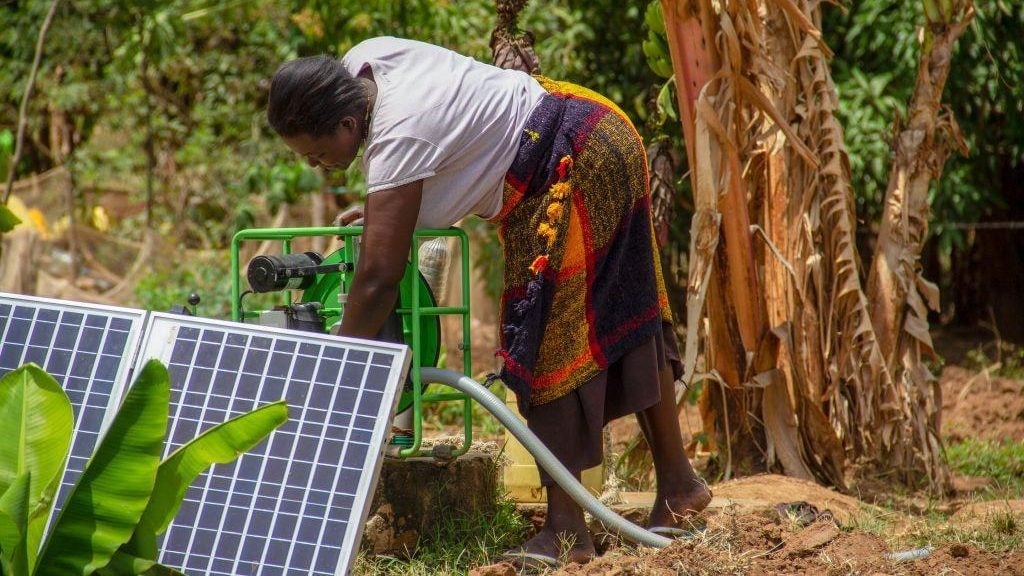How tech and agriculture can help Africa’s pandemic recovery
Agriculture is a pillar of Africa’s economy, with the continent heavily dependent on the sector. It contributes 23% of the continent’s GDP and 49% of employment in the continent.


Agriculture is a pillar of Africa’s economy, with the continent heavily dependent on the sector. It contributes 23% of the continent’s GDP and 49% of employment in the continent.
But the covid-19 pandemic has disrupted agricultural activity in the continent with considerable effect, as smallholder farmers, who contribute most of the food supply, face movement restrictions, reductions in people’s purchasing power, and other factors. The pandemic has strained Africa’s food systems and economies at large.
A new report concludes that youth engagement in agriculture will be essential to the continent recovering from the economic impacts of the pandemic. It highlights the need for investments to stimulate access to innovations to encourage young Africans to embrace agriculture to generate jobs and repair food systems hit by the pandemic.
The report is by the US-based nonprofit Heifer International, which works to eradicate poverty and hunger through agriculture. Researchers surveyed 29,900 youth, 299 smallholder farmers, and 110 agriculture technology startups, innovation hubs, and technology organizations across 11 African countries.
Agriculture drives Africa’s economy, and has been adversely affected by the pandemic
The Heifer International survey found that 40% of agriculture organizations in the research were forced to close at least temporarily due to the pandemic, 38% experienced a reduction in average purchase amount per customer, and 36% still do not have the financial capital to grow back their businesses. Fourteen percent of respondents said technology barriers have had a detrimental effect on farmer productivity.
But the report finds hope in the youth and tech as the survey found that many entrepreneurs are developing useful agri-tech tools and services for smallholder farmers in the continent. They are using artificial intelligence, remote sensing, geographic information software, virtual reality, drones, application programming interfaces and other technology to boost agricultural productivity and profits.
Africa has a burgeoning agri-tech scene. Agri-tech startups raised $60 million in 2020, representing 8.6% of the total funding secured by tech startups in the continent last year, according to Disrupt Africa, a website that provides startup funding data.
Hello Tractor, an example of an agri-tech company in the continent, provides an application that enables farmers to book tractors and another for remote fleet management. The company operates in 13 African countries.
“The vision is to continue to support our growers earn higher yields, higher productivity through mechanization,” its founder, Jehiel Oliver, told Quartz. “And ultimately, we wanna see Africa and all the countries become thriving economies built on its most important industry, which is agriculture.”
Africa is a young continent, with almost 60% of its population aged below 25. The survey found that young people are interested in getting into agriculture but they lack access to finance and training to build sustainable and businesses for sustainable incomes and rewarding careers. And out of the youth who engage in agriculture, only 23% of them use any form of agricultural technology, due to lack of financing and training.
The report recommends that governments facilitate young people having access to agri-tech tools to transform food production. It argues that smallholder farmers would embrace advanced technologies if the tools were affordable; and agriculture innovations have a pulling power for every stakeholder in the sector as they can create opportunities for young people while sustainably increasing productivity for smallholder farmers. The latter would in turn improve their livelihoods and stimulate economic growth, it says.
Use a different color below for Agritech
“Africa is not providing the financing or training to ensure its young people have easy access to the same agritech tools—like drone technologies, precision soil sensors, and digital farmer services—that are transforming food production around the world,” said Adesuwa Ifedi, senior vice president for Africa programs at Heifer International.
Enoch Chikava, the interim director for agricultural development at the Bill & Melinda Gates Foundation, said innovation is fundamental to making agriculture in the continent productive, profitable, and sustainable.
“The climate is changing. Things are never the same. The markets are more complex. So, you need innovation that will help you to really turn all these global technologies into impact on the ground,” he told Quartz.
Sign up to the Quartz Africa Weekly Brief here for news and analysis on African business, tech, and innovation in your inbox.